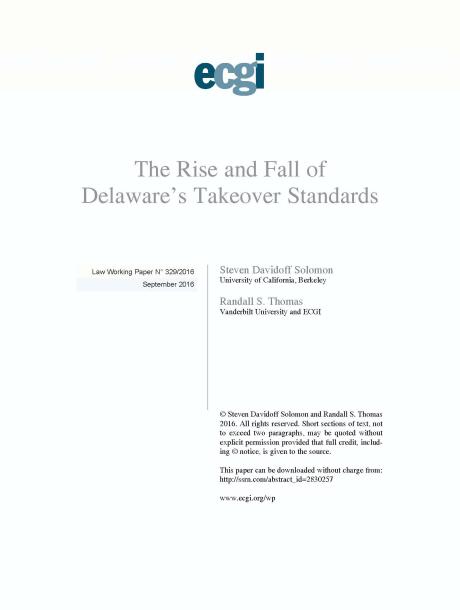
The Rise and Fall of Delaware's Takeover Standards
Abstract
The takeover standards that we learn and teach in law school, Revlon, Unocal, Weinberger, and Blasius, appear to be in decline. In this chapter for the book The Corporate Contract In Changing Times: Is the Law Keeping Up? (eds. William Savitt, Steven Davidoff Solomon, Randall Thomas), we attempt to explain the rise and fall of jurisprudential takeover standards in Delaware. We theorize that these standards were created by Delaware courts in the mid-1980s to rectify a perceived failure in the corporate governance system, principally the apparent failure of directors to act responsibly in the corporate governance eco-system. These new standards successfully channeled takeovers into certain preferred forms, but also helped ameliorate the problematic practices of that period. These new standards collectively had another effect: encouraging the rise of private enforcement activities, initially by the raiders themselves, but once hostile transactions became a less significant force, through expanded shareholder litigation. In this new environment, private litigation became increasingly unnecessary, a fact which became quite apparent with the rise in litigation rates to 96% of all takeovers. At the same time, the rise of institutional investors, coordinating bodies such as proxy solicitors, hedge fund activism and corporate governance movements, as well as the expansion of federal securities law into areas like executive compensation and board independence/monitoring, occurred. The consequence was a largely justifiable relaxation of these standards.








